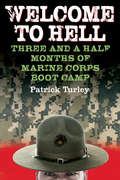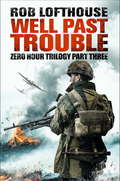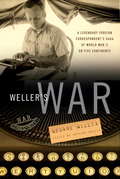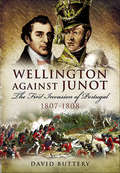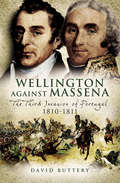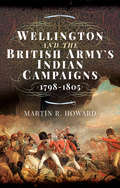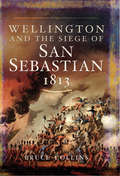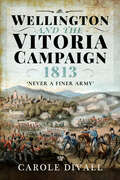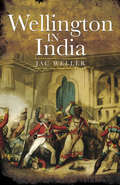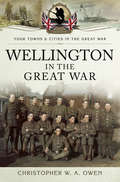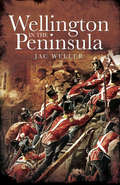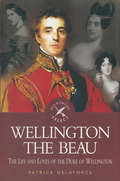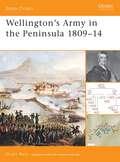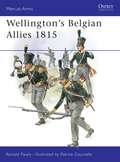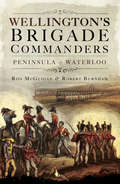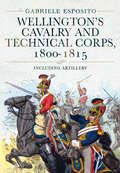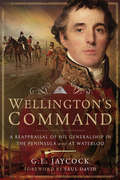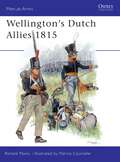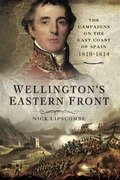- Table View
- List View
Welcome to Forever (Hero's Welcome #1)
by Annie RainsThis book was previously published in December of 2015 by Loveswept, a digital only imprint of Random House.The residents of the small coastal town of Seaside, North Carolina fall into two categories: Marines and their kids. When outsider Kat Chandler takes a new job as the principal of Seaside Elementary, she faces opposition to her goal of creating an oasis of calm for the children. Adding to her challenges is single father Micah Peterson, who wastes no time in telling Kat the way things should be done. Kat can handle overbearing parents, but when Micah adds passionate kisses to the mix, she knows she’s in trouble.Marine Sergeant and single dad Micah Peterson puts all his military discipline and precision into the two most important things in his life: his job and his son, Ben. But meeting Ben’s gorgeous new principal causes Micah to wonder if there might be room in his world for one more. Kat is certainly sexy, but Micah feels more for her than just physical attraction as he watches her build meaningful relationships with her students. When he learns Kat has a strict no Marines dating rule, Micah sets out to prove to Kat he’s worth the risk . . . a risk that just might turn into forever.
Welcome to Forever: A Hero's Welcome Novel
by Annie RainsThe Hero’s Welcome military romance series introduces a small coastal town where America’s best and brightest risk everything for love. In Seaside, North Carolina, there are two kinds of people: Marines, and kids of Marines. Then there’s Kat Chandler. Recently hired as the principal of Seaside Elementary, Kat makes it her mission to turn the school into a place of peace and calm. That’s not going to be easy with hard-liner parents like Micah Peterson storming in, telling her how to do her job—and then kissing her with those gorgeous lips of his and turning her brain into mush. As a Marine Sergeant and a single dad, Micah Peterson has just two priorities: doing his job better than anyone else, and getting the absolute best for his son, Ben. But when he meets Ben’s beautiful new principal, a different yearning shifts into focus. He wants her, sure, but he’s also moved by the connection Kat forges with her students. So after learning that she refuses to date Marines, Micah sets two more objectives: convincing Kat to give him a chance . . . and then holding on to her forever.
Welcome to Hell: Three And A Half Months Of Marine Corps Boot Camp
by Patrick Turley"Welcome to Hell," the drill instructor announced to the small crowd of young men staring at him apprehensively, his words charging the atmosphere with a foreboding intensity. Three and one half months of hellish and seemingly outrageous demands would be made of those who would endure the journey through the fires of boot camp. These young men would find a pride in themselves that would last forever. Those survivors of boot camp training often look back, with a smile and even a laugh, at what they endured from the DI. Patrick Turley, driven to enlist by the events of 9/11, captures these anxious times perfectly in vivid detail establishing an emotional bond with the reader throughout his journey from man to Marine, and John Patrick Shanley said it only as a former Marine and Pulitzer Prize winner could: "It's great to have gone to Marine Corps boot camp. It's terrible to be in Marine Corps boot camp. It's fun to read about Marine Corps boot camp."
Welcoming the Bad Boy: A Hero's Welcome Novel
by Annie RainsFrom the bestselling author of Welcome to Forever ("Full of heart and emotion!"--Lori Wilde) comes a sweet, sexy novel about breaking all the rules. In Seaside, North Carolina, the boys on the base are heroes--but that doesn't mean they're always well-behaved. As a preacher's daughter, Valerie Hunt only dates the very respectable, very boring men who meet her father's strict standards. In private, however, she leads a double life as a romance writer of steamy stories about the least respectable sorts of men. Valerie has always kept her hottest fantasies separate from her real life, but when she nearly runs a hot-blooded biker off the road, the lines begin to blur. Even though Valerie almost killed him, Griffin Black can't be angry after he learns the reason for her distracted driving: an unruly puppy belonging to her ailing friend. As a member of the military police K-9 unit, Griffin insists on training the dog himself. But he soon wonders how he's ever going to stay disciplined around the most alluring, down-to-earth, and totally unattainable woman he's ever met. Valerie is the ultimate good girl. And Griffin is going to need all his old tricks to unleash her wild side.Praise for the Hero's Welcome series "Annie Rains didn't disappoint with this new story, and pulled me right into the book, making me fall in love once again with her characters, the small town setting and an emotional story that made my heart soar. I think I'll never get enough of this series!"--Roberta's Dreamworld, on Welcome Home, Cowboy "Welcome Home, Cowboy is sweet and entertaining, with a little side of playfulness. The characters were loveable and the storyline was able to fully capture my attention."--Hines and Bigham's Literary Tryst "A story that made me smile, laugh out loud, shed a tear, and sigh so deeply, while telling a tale of love, and loss."--Books and Spoons, on Welcome Home, Cowboy "Not only was it a great, heartwarming, and spicy romance, but it was a book of hope, second chances, finding strength inside oneself, and making life better. . . . Great book!"--Devilishly Delicious Book Reviews, on Welcome Home, Cowboy "Don't miss this sparkling debut full of heart and emotion!"--New York Times bestselling author Lori Wilde, on Welcome to Forever "A beautiful and touching story of love and loss that will grab you by the heart and hold on long after you've finished reading."--USA Today bestselling author Laura Drewry, on Welcome to Forever "A wonderfully written debut novel that had me fighting back tears and rooting for the couple from the first page. Annie Rains is an author to watch. I can't wait for more!"--USA Today bestselling author Sidney Halston, on Welcome to Forever Includes a special message from the editor, as well as an excerpt from another Loveswept title.
Well Past Trouble: Zero Hour Trilogy part three
by Rob LofthouseWell Past Trouble is the last in the Zero Hour trilogy and sees Robbie and his men's endurance, spirit and bond tested to their limits.March, 1945 - With the Germans in retreat, the Allies begin to look toward the ultimate prize: Berlin. But first they must cross the heavily-defended Rhine into Germany's industrial heartland. In the savage fighting for this crucial gateway, Robbie Stokes and his airborne division must drop into enemy territory and hold off German reinforcements.Exhausted after fighting through France and the Netherlands it falls to Robbie to lift his company for one final operation and the push into Germany. But despite his experience, nothing he's seen yet can prepare him for what they find as the Germans retreat and their cruelty is revealed. The end is insight, but Robbie and his men will have to fight every inch of the way.
Weller's War: A Legendary Foreign Correspondent's Saga of World War II on Five Continents
by George WellerWalter Cronkite called him "one of our best war correspondents." His stories from Europe, Africa, Asia, and the Pacific during World War II won him the Pulitzer Prize. Now, George Weller is immortalized in a collection of fearless, intrepid dispatches that crisscross a shattered globe. Edited by his son, Weller's War provides an eyewitness look at modern history's greatest upheaval, and also contains never-published reporting alongside excerpts from three books. From battlefront to beachhead, Weller incisively chronicles the heroism and humanity that still managed to triumph amid horrific events. Following the Nazi seizure of Eastern Europe and his own "quarantine" in Greece by the Gestapo, George Weller accompanies Congolese troops freeing Ethiopia for Haile Selassie. He remains in doomed Singapore until the colony falls. On Java, he watches brave American fighter pilots delay the island's collapse. Strafed by Japanese planes, he escapes by small boat to Australia. He covers the Pacific, from the Solomon Islands to the jungle hell of New Guinea. Back in Europe he sees a liberated Greece beset by civil war, then crosses the Middle East. In Burma, he risks guerrilla raids behind enemy lines. At the war's close, he hurries from China to a defeated but uncowed Japan, where new horrors await. And he struggles throughout against a tireless adversary--censorship. Vivid and heart-stopping, the dispatches of World War II reporter George Weller are as intimate, memorable, and relevant today as they were nearly seventy years ago--and demonstrate what it meant to be a foreign correspondent long before the era of satellite phones and the Internet.
Wellington
by Hon Sir John William FortescueSIR JOHN FORTESCUE was the foremost military historian of his day. Librarian at Windsor Castle from 1905 to 1926, he was the author of many notable books, including his famous History of the British Army. Among these, his life of Wellington, described by the Spectator as 'deserving to rank with Southey's Nelson as a national classic', has always been held in special regard. Many biographies of Wellington have been written both before and since, but none show so clearly and concisely how Wellington became the great leader of soldiers that he undoubtedly was.Wellington's military career can be divided roughly into three main phases. First, his command in India and his brilliant conduct of the Mahratta campaign; then the long war of attrition in the Iberian peninsular; and finally the campaign leading to Napoleon's defeat at Waterloo. Sir John gives the reader what The Times Literary Supplement called 'a hilltop view' of those years, 'pointing out the great essential features of the landscape . . . and doing it all so clearly that we know the country better and more intimately than we have ever done before.'This edition makes available again a book that is of interest both to students of military history and to the general reader who wishes to follow the campaigns of a military commander, who was a great patriot and English gentleman.
Wellington & Napoleon: Clash of Arms (Pen & Sword Military Classics)
by Robin NeillandsWellington and Napoleon tells the story of the convergence and final clash of two of the most brilliant commanders ever to meet on the field of battle. Wellington, his men said, did not know how to lose a battle. But Wellington himself admired his adversary
Wellington Against Junot: The First Invasion of Portugal, 1807–1808
by David ButteryThe first French invasion of Portugal in 1807 - which was commanded by Junot, one of Napoleon's most experienced generals - was a key event in the long, brutal Peninsular War. It was the first campaign fought in the Peninsular by Sir Arthur Wellesley, later Duke of Wellington, yet it tends to be overshadowed by more famous episodes in the six-year conflict that followed.David Buttery, in this original and perceptive new study, sets the record straight - his tightly focused narrative covers the entire campaign in vivid detail.
Wellington Against Massena: The Third Invasion of Portugal, 1810–1811
by David ButteryWellington's clash with Massena was one of the most remarkable contests between two commanders in the Peninsular War. These two formidable generals carried on a campaign of maneuver, battle and attrition across Spain and Portugal in 1810 and 1811 which had a decisive impact on the outcome of the war. Wellington's reputation was enhanced, Massena's was ruined.David Buttery's close analysis of this extraordinary encounter offers a penetrating insight into the personalities of these two outstanding soldiers. Using a variety of sources, in particular eyewitness accounts from both sides, he reassesses the famous confrontations at Ciudad Rodrigo, Almeida, Busaco, the lines of Torres Vedras and the final bitterly fought battle at Fuentes de Ooro.He sheds new light on this pivotal episode in the Napoleonic Wars and his account corrects the one-sided view of the campaign that has survived to the present day. In particular he reconsiders the true cost of the scorched earth policy that was employed against the French
Wellington and the British Army's Indian Campaigns, 1798–1805
by Martin R. HowardThis &“superb account of the British Army under Wellington in India reads like one of Bernard Cornwell&’s Sharpe novels, or, better still, a Flashman novel&” (Books Monthly). The Peninsular War and the Napoleonic Wars across Europe are subjects of such enduring interest that they have prompted extensive research and writing. Yet other campaigns, in what was a global war, have been largely ignored. Such is the case for the war in India which persisted for much of the French Revolutionary and Napoleonic periods and peaked in the years 1798-1805 with the campaigns of Arthur Wellesley—later the Duke of Wellington—and General Lake in the Deccan and Hindustan. That is why this new study by Martin Howard is so timely and important. While it fully acknowledges Wellington&’s vital role, it also addresses the nature of the warring armies, the significance of the campaigns of Lake in North India, and leaves the reader with an understanding of the human experience of war in the region. For this was a brutal conflict in which British armies clashed with the formidable forces of the Sultan of Mysore and the Maratha princes. There were dramatic pitched battles at Assaye, Argaum, Delhi and Laswari, and epic sieges at Seringapatam, Gawilghur and Bhurtpore. The British success was not universal.&“An absorbing account of Wellesley/Lord Wellington which shows how his actions in India had a significant effect on the development of the British Empire and events through to the modern era.—Highly Recommended.&” —Firetrench&“An eye opener on the power and influence of the East India Company at this time. A jolly good read.&” —Clash of Steel
Wellington and the Siege of San Sebastian, 1813
by Bruce CollinsBruce Collins's in-depth reassessment of the Duke of Wellington's siege of San Sebastian during the Peninsular War is a fascinating reconstruction of one of the most challenging siege operations Wellington's army undertook, and it is an important contribution to the history of siege warfare during the Napoleonic Wars. He sets the siege in the context of the practice of siege warfare during the period and Wellington's campaign strategies following his victory at the Battle of Vitoria. He focuses on how the army assigned to the siege was managed and draws on the records of the main military departments for the first time to give an integrated picture of its operations in the field. The close support given by the Royal Navy is a key aspect of his narrative. This broad approach, based in fresh archive research, offers an original perspective on both San Sebastian's significance and the nature of siege warfare in this period.
Wellington and the Vitoria Campaign 1813: Never a Finer Army
by Carole DivallOver two hundred years ago, on 21 June 1813, just southwest of Vitoria in northern Spain, the British, Portuguese and Spanish army commanded by the Duke of Wellington confronted the French army of Napoleon’s brother Joseph. Hours later Wellington’s forces won an overwhelming victory and, after six years of bitter occupation, the French were ousted from Iberia. This is the critical battle that Carole Divall focuses on in this vivid, scholarly study of the last phase of the Peninsular War. The battle was the pivotal event of the 1813 campaign - it was fatal to French interests in Spain - but it is also significant because it demonstrated Wellington’s confidence in his allied army and in himself. The complexity of the manoeuvres he expected his men to carry out and the shrewd strategic planning that preceded the battle were quite remarkable. As well as giving a graphic close description of each stage of the battle, Carole Divall sets it in the wider scope of the Peninsular War. Through the graphic recollections of the men who were there – from commanders to the merest foot soldiers – she offers us a direct insight into the reality of combat during the Napoleonic Wars.
Wellington in India (Greenhill Military Paperback Ser. #No. 24)
by Jac WellerThe author of Wellington in the Peninsula presents an in-depth study of the British military commander&’s early career in Colonial India. Before Arthur Wellesley, the future 1st Duke of Wellington, faced Napoleon's armies, he developed his skills as a military commander in the far reaches of the British Empire. In India, Wellesley led his men to victory against the Tipu Sultan at the Battle of Mallavelly, and suffered injury at the Battle of Seringapatam. He would later put his experience of strategy and tactics to masterly effect against his most formidable opponent in years to come. Historian Jac Weller gives a complete account of Wellington's career in India, the battles and sieges he undertook, the challenges he faced, and the lessons he learned. Weller explores the first major steps in Wellesley's career and demonstrates how these early triumphs set him on the road that would eventually lead to Napoleon's defeat at Waterloo.
Wellington in the Great War (Your Towns And Cities In The Great War Ser.)
by Christopher W. OwenHow the experience of war impacted on the town, from the initial enthusiasm for sorting out the German Kaiser in time for Christmas 1914, to the gradual realization of the enormity of human sacrifice the families of Wellington were committed to as the war stretched out over the next four years. A record of the growing disillusion of the people, their tragedies and hardships and a determination to see it through. The Great War affected everyone. At home there were wounded soldiers in military hospitals, refugees from Belgium and later on German prisoners of war. There were food and fuel shortages and disruption to schooling. The role of women changed dramatically and they undertook a variety of work undreamed of in peacetime. Meanwhile, men serving in the armed forces were scattered far and wide. Extracts from contemporary letters reveal their heroism and give insights into what it was like under battle conditions.
Wellington in the Peninsula, 1808–1814: 1808-1814 (Napoleonic Library)
by Jac WellerThe author of Wellington at Waterloo delivers an in-depth history of the military commander&’s tactics and strategy in the Peninsular War. After gaining strategic and tactical experience in Colonial India, Arthur Wellesley went to battle against French forces in the Peninsular War. With his decisive victories there, he ascended to the peerage of the United Kingdom as the 1st Duke of Wellington. Inthis volume, historian Jac Weller delivers a complete account of Wellington&’s career on the Iberian Peninsula, covering all the battles in which he took part. Talavera, The battles of Busaco, Salamanca and Vitoria are among the famous conflicts Weller brings to life in the lively chronicle, combining meticulous research with extensive visits to the historic battlefields. Supplementing his accessible narrative with photographs, Weller demonstrates how this great commander finally achieved victory after six years of battle against Napoleon&’s army.
Wellington the Beau: The Life and Loves of the Duke of Wellington (Pen & Sword Select)
by Patrick DalaforceThe military achievements of Arthur Wellesley, the first Duke of Wellington, have been well documented and deservedly so. Inevitably his fame and success made him attractive, nay irresistible, to the opposite sex and over the many years of his campaigning away from home he came into contact with a great number of beautiful and powerful ladies. Patrick Delaforce focuses in a tasteful way on these relationships which often had an important influence on the Great Man ' and occasionally on the shape of history. Many of his encounters were undoubtedly platonic, others certainly not.
Wellington's Army in the Peninsula 1809-14
by Stuart ReidThis highly detailed study provides a clear account of how the British Army was organised, who commanded it, and how it functioned in the field during the Peninsular War. Focusing principally on infantry, cavalry and artillery, including foreign units in British pay, it provides a detailed and comprehensive order of battle. Doctrine, training, tactics and equipment are discussed in depth, and medical services and engineers are also covered. Concise biographical details of key commanders, over 60 unit tree diagrams, organisational tables, plus numerous illustrations make this an essential reference work for students of this period.
Wellington's Belgian Allies 1815
by Patrice Courcelle Ronald PawlyThe army commanded by the Duke of Wellington at Quatre-Bras and Waterloo included two infantry divisions and three cavalry brigades of the newly-unified Netherlands (or 'Dutch-Belgian') army. The part played by these troops in the two battles of the Napoleonic Wars (1799-1815), under experienced officers many of whom had seen long service in Napoleon's campaigns, has often been unjustly dismissed by British commentators. The organisation, uniforms, and battle record of the Belgian units are explained here in detail by an experienced researcher in Continental archives, and illustrated by a specialist in the period, who actually lives at Waterloo.
Wellington's Brigade Commanders: Peninsula & Waterloo
by Robert Burnham Ron McGuiganRecent research into the Duke of Wellington's armies during the Peninsular War and the Waterloo campaign has enhanced our understanding of the men he led, and this new biographical guide to his brigade commanders is a valuable contribution to this growing field. Ron McGuigan and Robert Burnham have investigated the lives and careers of a group of men who performed a vital role in Wellington's chain of command. These officers were the brigadiers and major generals who, for a variety of reasons, never made the jump to become permanent division commanders. Their characters, experience and level of competence were key factors in the successes and failures of the army as a whole. Their biographies give us a fascinating insight into their individual backgrounds, their strengths and weaknesses, and the makeup of the society they came from. Each biography features a table covering essential information on the individual, his birth and death dates, the dates of his promotions and details of his major commands. This is followed by a concise account of his life and service.
Wellington's Campaigns, Peninsula-Waterloo, 1808-15: Also Moore's Campaign of Coruña, for Military Students
by Maj.-Gen. Sir C. W. RobinsonIn this book, first published in 1907, all three parts of Wellington’s Campaigns, hitherto published separately, are brought out together in one volume.The consolidated volume covers all campaigns fought during the Peninsula War in Portugal, Spain, and the South of France between 1808 and 1814 and concludes with the Waterloo campaign in 1815. It also contains an additional Appendix concerning the influence of certain Spanish operations and special circumstances in Spain upon the movements of Moore and Wellington.Richly illustrated throughout with sketch maps and plans.
Wellington's Cavalry and Technical Corps, 1800–1815: Including Artillery
by Gabriele EspositoWhile artillery has been described as the queen of the Napoleonic battlefield, this was an era when cavalry could still play a decisive role in battle, as well as being vital on campaign. This volume covers both British cavalry and artillery of the Napoleonic Wars, as well as supporting units such as engineers. Gabriele Esposito describes the history, organization and uniforms of the various units in full detail, following the evolution and combat history of each. Mounted troops deployed in the various British colonies as well as foreign cavalry units in British service will be all covered in specific chapters. The technical corps, most notably the artillery (both foot and horse) and the engineers, are given similar treatment. Royal Marines naval infantry and some other 'auxiliary' corps (like the Yeomanry/militia cavalry or the Sea Fencibles, all very little known) are also included. The book is lavishly illustrated with dozens of color paintings.
Wellington's Command: A Reappraisal of His Generalship in the Peninsula and at Waterloo
by George E. JaycockA military historian assesses the leadership style of the man who defeated Napoleon.The Duke of Wellington’s victory at the Battle of Waterloo cemented his reputation as a great general, and much subsequent writing on his career has taken an uncritical, sometimes chauvinistic view of his talents. Little has been published that fully pins down the reality of Wellington’s leadership, clearly identifying his weaknesses as well as his strengths.George E. Jaycock, in this perceptive and thought-provoking reassessment, does not aim to undermine Wellington’s achievements, but to provide a more nuanced perspective. He clarifies some simple but fundamental truths regarding his leadership and his performance as a commander.Through an in-depth study of his actions over the war years of 1808 to 1815, the author reassesses Wellington’s effectiveness as a commander, the competence of his subordinates, and the qualities of the troops he led. His study gives a fascinating insight into Wellington’s career and abilities. Wellington’s Command is absorbing reading for both military historians and those with an interest in the Napoleonic period.
Wellington's Dutch Allies 1815
by Patrice Courcelle Ronald PawlyThe forces commanded by the Duke of Wellington at Quatre-Bras and Waterloo included two infantry divisions and three cavalry brigades of the newly unified ('Dutch-Belgian') army of the Kingdom of the Netherlands, mostly led by veteran officers who had served under Napoleon during the Napoleonic Wars (1799-1815). The part played by these troops - particularly in holding the vital crossroads of Quatre-Bras, at the insistence of their own commanders - has often been unjustly dismissed by British commentators. In this book the history, organisation, uniforms and battle record of the Dutch units of this army are explained and illustrated in detail by two experienced researchers in Continental archives, and illustrated with many rare portraits as well as meticulous colour plates.
Wellington's Eastern Front: The Campaigns on the East Coast of Spain, 1810–1814
by Nick LipscombeAt last, in this absorbing and authoritative study, the story of the epic struggle on Spains eastern front during the Peninsular War has been told. Often overlooked as not integral to the Duke of Wellingtons main army and their campaigns in Portugal and western Spain, they were, in point of fact, intrinsically linked. Nick Lipscombe, a leading historian of the Napoleonic Wars and an expert on the fighting in the Iberian peninsula, describes in graphic detail the battles fought by the French army of General Suchet against the Spanish regulars and guerrillas and subsequently the Anglo-Sicilian force sent by the British government to stabilize the region. Despite Suchet's initial successes and repeated setbacks for the allied armies, by late 1813 the east coast of Spain held a key to Wellington's invasion of France and the ultimate defeat of Napoleon's armies in the Peninsula. At a tactical level the allies were undeniably successful and made an important contribution to the eventual French defeat.


